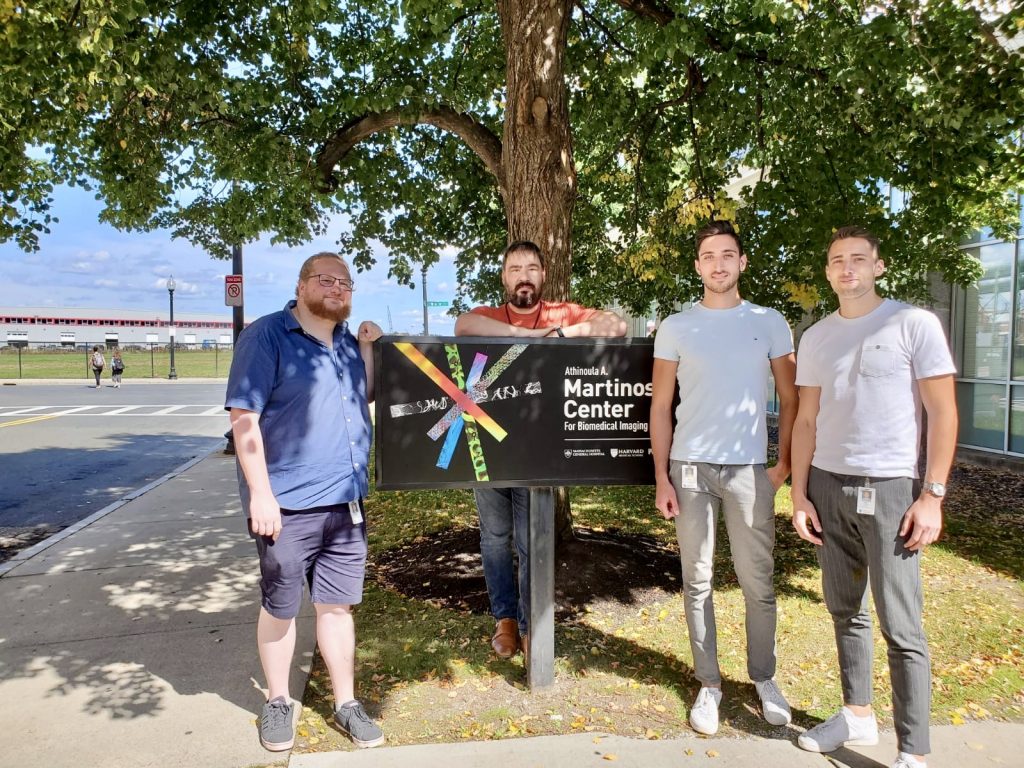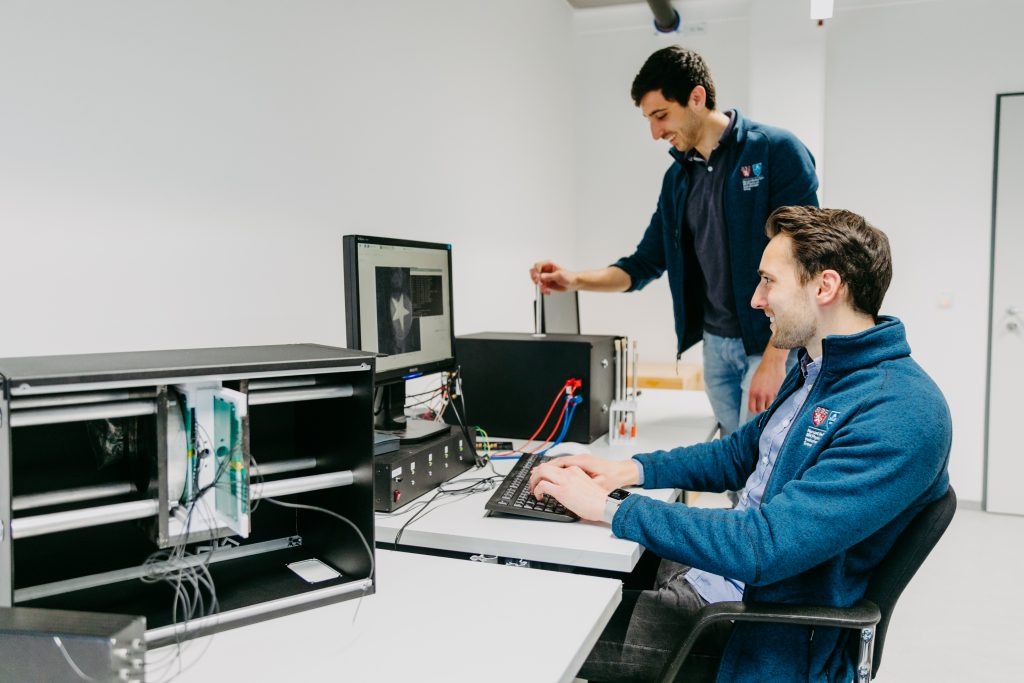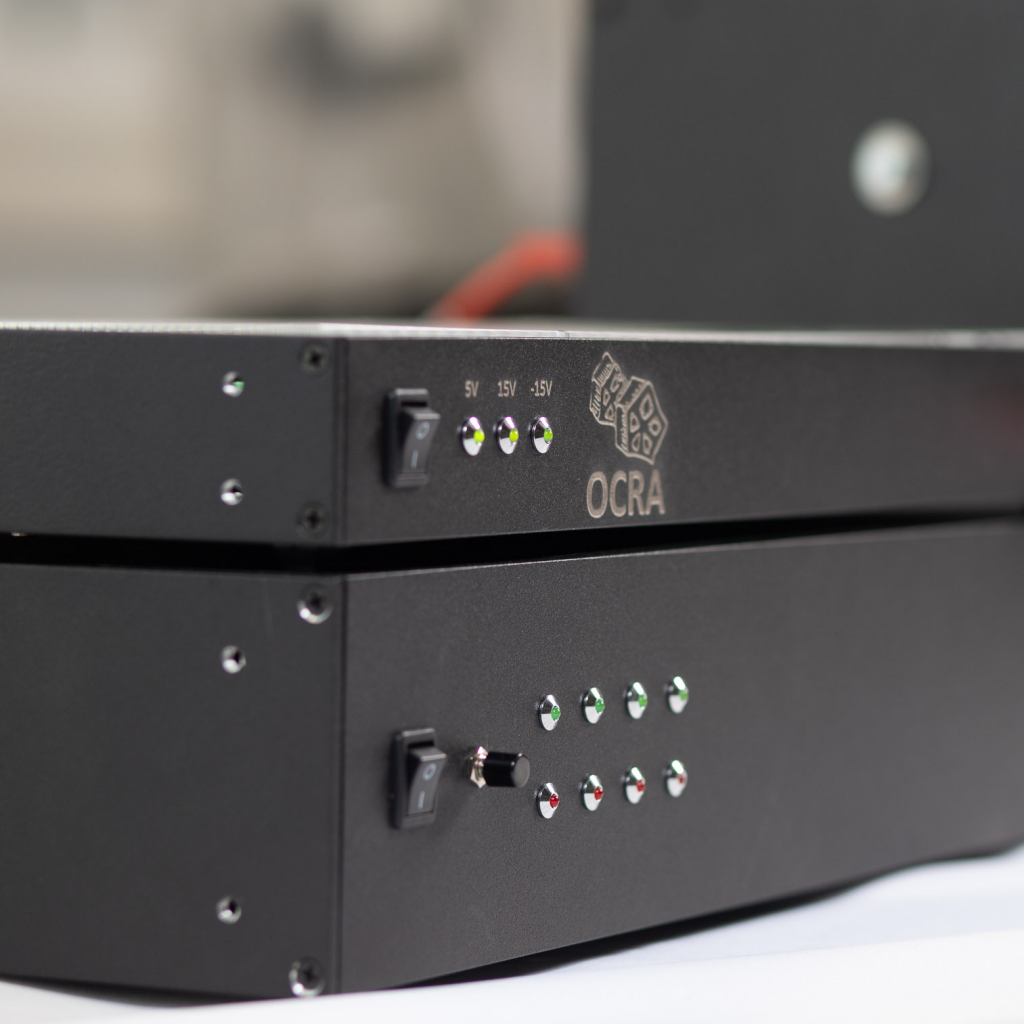Hello OCRA Community!
My name is Marcus Prier and I’m working at the Research Campus STIMULATE of the Otto-von-Guericke University Magdeburg (Germany). I’m a physicist and specialized in MRI RF electronics development. A few years ago, I had a short-term scholar at the Athinoula A. Martinos Center in Boston supervised by Larry Wald in Boston where I met the Tabletop MRI scanner and also Thomas Witzel with his OCRA project. Together with Thomas, we had the idea to build an OCRA Tabletop MRI scanner for Magdeburg.

This would enable us a cheap test bench for my MRI electronics, the teaching of students in direct contact on a state of the art MRI system, and do common research projects with the Martinos Center. As the Martinos Tabletop system is open-source it was possible to rebuild it. But as we see the flaws with the existing system we had the plan to not just copy it but rather build our own version. After my first visit to Boston, the Athinoula A. Martinos Center (Harvard Medical School, MIT) and the Otto-von-Guericke University signed a cooperation agreement.
Since then, together with two master students in Medical Systems Engineering, David Schote, and Ivan Fomin, we developed a mini MRI scanner based on the Tabletop MRI idea but more importantly improved the hard- and software of the OCRA. David and Ivan were the first students doing a research track project at the Martinos Center in Boston. Their main job was the development of the OCRA control software, with a graphical user interface and the gradient amplifier. At the same time, I did a second short term scholar at the Martinos Center to build the main electronics for the OCRA. Back in Magdeburg, we started building our own Neodymium magnet. Therefore we utilized the Comsol project provided by the Martinos Center, modified it to our parts, and simulated the B0 field of the magnet arrangement. Also, Ivan implemented a pole shoe modulation to the magnets improving the field homogeneity by passive shimming. This led to a major improvement, compared to the state of the art Martinos Center magnet. By using bigger magnets, we were also able to increase the mean B0 field strength. But all these simulation values can only be achieved if the magnet is built carefully and precisely. For this, we developed a very robust assembly tool from aluminum, that allows a slow and precise placement of the very strong magnets on the ferritic yoke parks. Those magnets have enough pulling force to lift a small car.
As well as our role model, the Martinos Center, we first build a wooden RF box for the magnet. But this was very time consuming, so we moved on to standardized aluminium 19” Racks, which we individualized through CNC milling. From the electronic designs from my main RF project and the developeds from our stays at the Martinos Center, we were able to receive a spin signal shortly after the magnet assembly.

Short time after having a signal giving system I held a student course called MR system engineering. Over a semester small student teams are instructed to build software or hardware for the Tabletop system. A group of Medical Systems Engineering students around Joris Hubmann developed a gradient amplifier based on the Martions design, with a reduced amount of minimal necessary components, archiving the same performance. With a functional gradient amplifier, we then were able to acquire images, what was very exciting. Since then the MRSE course was hold two times, with the support of Ivan Fomin and David Schote. Therethrough, we were able to improve our Tabletop system year by year.

We presented the OCRA Tabletop MRI scanner at several events like the “long night of science” at the Otto-von-Guericke University of Magdeburg. People are fascinated that complex machines like MRI scanners can become so small and simple.
If you also have an interest in MRI hard- and software development and looking forward to an internship, bachelor-, master-thesis, or research projects at the Otto-von-Guericke University Magdeburg, feel free to contact us.
Visit our labs at Research Campus STIMULATE, G82, Otto-Hahn-Str. 2, 39106 Magdeburg (Germany).
Best regards
Marcus, David and Ivan

0 thoughts on “The OCRA Project in Magdeburg, Germany”